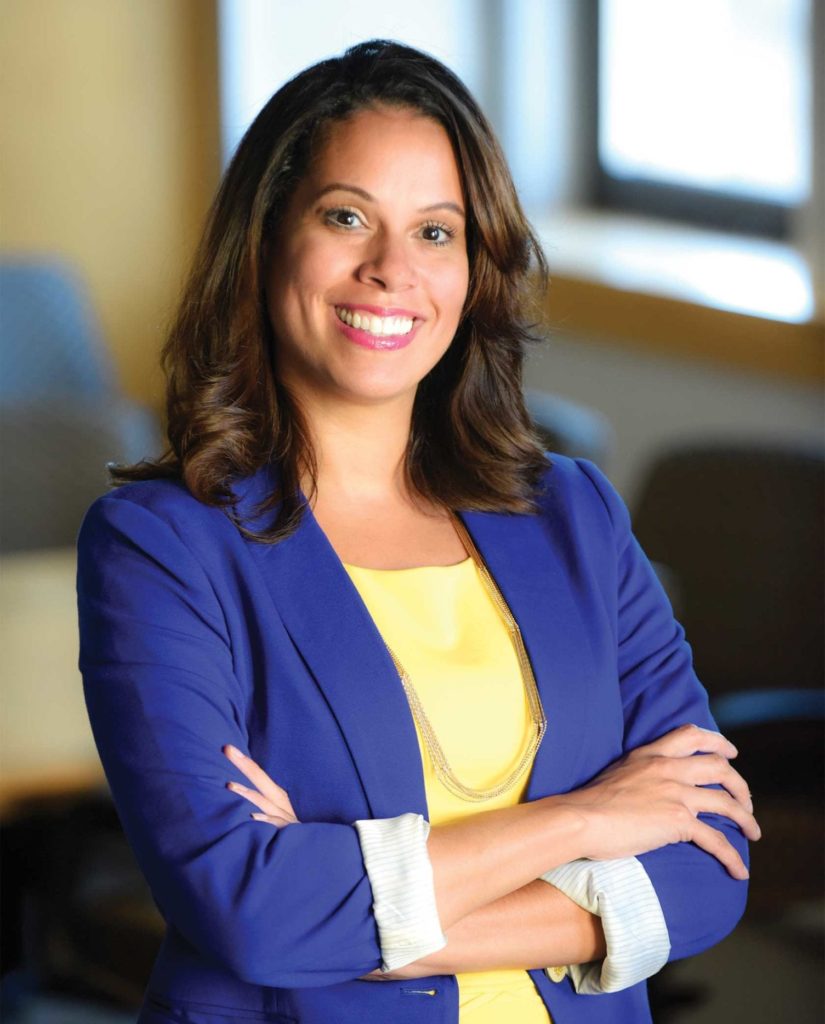
Natanja Craig-Oquendo is ushering in a new era at the Boston Women’s Fund. The Villa Victoria native and mother of five has dedicated her life to Boston’s grassroots organizations and become the executive director of one of the oldest women-centered organizations in the city.
Craig-Oquendo, 42, said she feels at home in her new role at BWF.
“The further I got along in the interview process, the more real it became, and the more the interview process was run so thoughtfully, the more affirmed I felt in my own vision for what BWF is,” she said in an interview with the Banner.
The BWF was the first women’s foundation in Massachusetts and boasts a diverse group of women leaders of multiple races, backgrounds and economic levels.
Craig-Oquendo, who previously was senior director of grassroots programs at The Boston Foundation, said she is excited to continue a legacy of leadership from women of color all over the city.
“I have the opportunity to stand on the shoulders of such giant women who came before me. We call them our founding mothers, or just other women in general who were trailblazers, like Anna Faith Jones and Frieda Garcia,” Craig-Oquendo said, referring to the Latina pair who made history in assuming leadership roles at The Boston Foundation.
Recognizing how these women have paved the way is crucial to her focus on providing for the women of Boston today, she said. Upon entering the philanthropic world, she considered what voices were missing from the conversation.
“In philanthropy, for some reason we came up with this idea that the experts aren’t actually the people that we’re trying to change their lives, that we should actually leave them out of the conversation,” she said.
As a young Black woman and a mother who had her first child at 15 years old, Craig-Oquendo knew that she was the target of philanthropic assistance, and that her voice was necessary. This began 20 years of experience at organizations like The Boston Foundation, the Urban League of Eastern Massachusetts and The Partnership. Most recently, she was vice president of community partnerships at The Possible Project, which fosters entrepreneurial opportunities and career planning for young people through a more hands-on approach.
“There was a time where I probably felt that my story was a little embarrassing, or I wouldn’t have told you I was on welfare, or I would hide some part of it,” Craig-Oquendo said of her journey. “What I realized now is, that’s all led me to this moment.”
She said that BWF holds values and a mission that is directly in line with her journey and has the boldness to keep fighting for gender equality and racial justice, as they have been for over 30 years.
Claudia Thompson, chair of the board at BWF, expressed her excitement for Craig-Oquendo to join the team in a letter this September.
“During her 12 years at the Boston Foundation, Natanja brought her unique perspective to its new work of supporting grassroots organizations and their leadership; she was instrumental in ensuring that their diverse voices were part of the decision-making process. Natanja will bring this same passion, energy and creativity to the challenges we face at BWF as we continue to grow and thrive,” Thompson wrote.
She added that Craig-Oquendo is the perfect person to lead during this challenging time, as women and girls and their families are affected by the COVID-19 pandemic.
Craig-Oquendo said that organizations are also going through their own separate challenges, like the gender pay gap and the suppression of voices of color.
“We have to be honest about the redlining that has happened with our philanthropic practices, in terms of Black and brown leaders receiving less money and women leaders receiving less money than white-led organizations,” she said.
Centering the “experts” in the community, she said, better helps organizations like BWF come up with solutions. That will require accountability that she thinks BWF is prepared to receive.
Craig-Oquendo noted that she was no stranger to the racism and sexism that is pervasive in this predominantly-white sector.
“My hope for all of my children is that any opportunity they see, they’re able to pursue it, and to pursue it without the burden of sexism or racism or discrimination,” she said.






